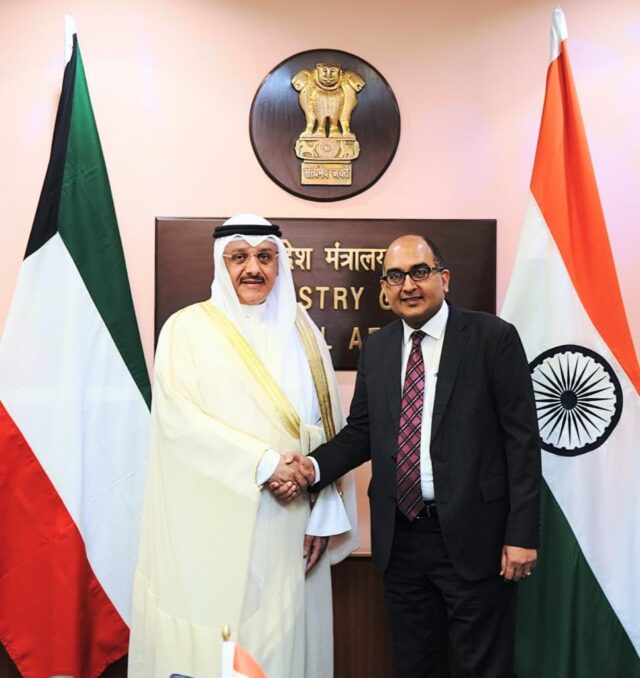India and Kuwait have always had close and amicable relations that have endured the test of time. Geographic closeness, historical commercial ties, cultural similarities, and the presence of a large number of Indian nationals in Kuwait all contribute to the long-standing relationship. India has long been a natural commercial partner of Kuwait, and the Indian rupee was the legal tender in Kuwait until 1961. Until the discovery and development of oil, Kuwait’s economy centered around its beautiful harbor and maritime activities such as shipbuilding, pearl diving, fishing, and voyages to India on wooden dhows carrying dates, pearls, and Arabian horses that were traded for wood, clothes, cereals, and spices.
Bilateral relations between India and Kuwait have continued to strengthen, with an increasing number of high-level bilateral visits on both sides. India has regularly been among Kuwait’s top ten trading partners. Through centuries of trade and cultural ties, as well as six decades of diplomatic relations, the two countries’ relationship has grown stronger, and people-to-people relations have improved.
The first Foreign Office Consultations (FOCs) between India and Kuwait were held in New Delhi on May 7, 2012, while the second FOCs were hosted in Kuwait on September 11, 2014. In New Delhi, the 5th India-Kuwait Foreign Office Consultations were held yesterday. During the consultation, both parties conducted a thorough examination of many elements of bilateral cooperation and shared opinions on regional and global challenges of mutual concern.
Vipul, Joint Secretary (Gulf), Ministry of External Affairs, led the Indian delegation, and Sameeh Essa Johar Hayat, Assistant Foreign Minister for Asia Affairs, led the Kuwaiti team. They also committed to broadening their collaboration in a variety of areas, including commerce and investment, education, health, science, research and high technology, and tourism.
The Indian side commended the Kuwaiti side for looking after the huge Indian community in Kuwait and looked forward to additional facilitation and simplification of some of the community’s consular difficulties. Both parties agreed that effective execution of the bilateral MoU on domestic workers is critical to ensuring safe and lawful migration. The Indian side expressed its eagerness to welcome Kuwait as a dialogue partner in the SCO during its presidency. The two sides also discussed the UN and other multilateral topics of mutual importance, such as UN Security Council reforms, and decided to continue conversations. The importance of the high-level visits and the early convening of the Joint Ministerial Commission, in particular at the EAM/FM level, was highlighted.









